
Lobatse: The Heart of Botswana's Legal Heritage
Nestled in the southern part of Botswana, Lobatse is a city rich in history and culture. Known for its legal heritage, it is home to Botswana's High Court, giving it a unique significance in the country's judicial landscape. The city's welcoming atmosphere and historical landmarks make it a fascinating destination for tourists. Lobatse offers a blend of modernity and tradition. Visitors can explore the picturesque surroundings filled with natural beauty, including rolling hills and scenic landscapes. The town's history is also reflected in its architecture, with colonial-era buildings standing alongside more contemporary structures. For those interested in wildlife, Lobatse does not disappoint. The nearby Manyelanong Game Reserve is a sanctuary for the Cape Vulture, providing an excellent opportunity for bird watching. The city's close proximity to other major attractions in Botswana makes it an ideal stop for travelers looking to immerse themselves in the country's rich cultural and natural heritage.
Local tips in Lobatse
- Visit the High Court to understand Botswana's legal history.
- Explore Manyelanong Game Reserve for a unique bird-watching experience.
- Take a stroll to appreciate the blend of colonial and modern architecture.
- Local markets offer a wide range of crafts and goods—perfect for souvenirs.
- Consider a guided tour to learn more about the city's rich history and culture.
Lobatse: The Heart of Botswana's Legal Heritage
Nestled in the southern part of Botswana, Lobatse is a city rich in history and culture. Known for its legal heritage, it is home to Botswana's High Court, giving it a unique significance in the country's judicial landscape. The city's welcoming atmosphere and historical landmarks make it a fascinating destination for tourists. Lobatse offers a blend of modernity and tradition. Visitors can explore the picturesque surroundings filled with natural beauty, including rolling hills and scenic landscapes. The town's history is also reflected in its architecture, with colonial-era buildings standing alongside more contemporary structures. For those interested in wildlife, Lobatse does not disappoint. The nearby Manyelanong Game Reserve is a sanctuary for the Cape Vulture, providing an excellent opportunity for bird watching. The city's close proximity to other major attractions in Botswana makes it an ideal stop for travelers looking to immerse themselves in the country's rich cultural and natural heritage.
When is the best time to go to Lobatse?
Iconic landmarks you can’t miss
The Three Dikgosi Monument
Honoring Botswana's founding fathers: Khama III, Sebele I, and Bathoen I, who secured the nation's independence.
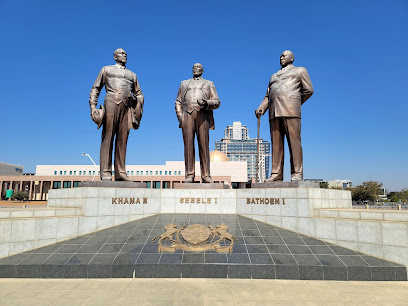
Lord Cumberland Hotel
Experience comfort and local charm at this welcoming Lobatse hotel, a perfect base for exploring Botswana's rich culture and history.

Big Valley Game Lodge
Escape to Big Valley Game Lodge in Lobatse: Experience Botswana's wildlife, comfortable lodging, and serene natural beauty. An unforgettable African adventure awaits!
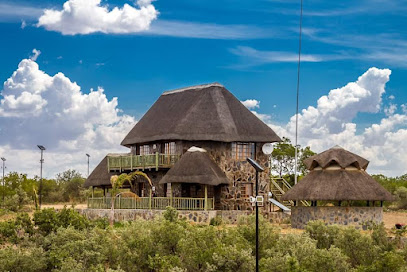
The Kalahari Kofi Company
Experience the cozy atmosphere and rich coffee flavors at The Kalahari Kofi Company in historic Lobatse, Botswana.
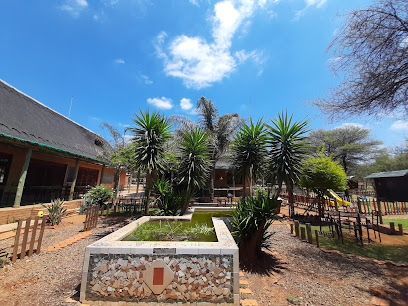
Lobatse Masjid
Discover Botswana's oldest mosque, a historical landmark and a peaceful sanctuary for the Muslim community in Lobatse.

Pitikwe Hill Guesthouse
Experience comfort and tranquility at Pitikwe Hill Guesthouse in Lobatse, Botswana. Your home away from home awaits!

Knockduff Farm Events Venue
Host unforgettable events amidst the serene landscapes of Knockduff Farm Events Venue in Lobatse, Botswana.

Swinburn's Rest
Experience comfort and tranquility at Swinburn's Rest in Lobatse, Botswana – your ideal base for exploring Southern Africa's hidden gems.

Samora Machel Museum
Explore the life and legacy of Samora Machel, a pivotal figure in Mozambique's fight for independence, at this Lobatse museum.

Fish Keitseng Monument
Honoring a Botswana hero: Fish Keitseng Monument preserves the legacy of the anti-apartheid activist and Botswana's role in Southern Africa's liberation.

Peleng East
Experience comfort and convenience at Peleng East Apartments in Lobatse, your ideal gateway to exploring Botswana's rich culture and natural beauty.

Thabantle Wilderness Estate
Escape to Thabantle Wilderness Estate: A serene Botswana retreat with diverse wildlife, hiking trails, and stunning natural beauty.

St. Theresa Catholic Church,Lobatse
Experience the serene beauty and community spirit of St. Theresa Catholic Church, a cultural gem in Lobatse, Botswana.

Unmissable attractions to see
Mokolodi Nature Reserve
Experience Botswana's wildlife and conservation efforts up close at Mokolodi Nature Reserve, just a short drive from Gaborone.
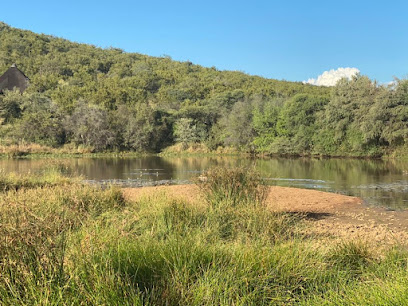
Mogonye Gorge
Discover Mogonye Gorge: A stunning Botswana nature preserve with dramatic cliffs, diverse wildlife, and rich cultural history near Lekgolobotlo.
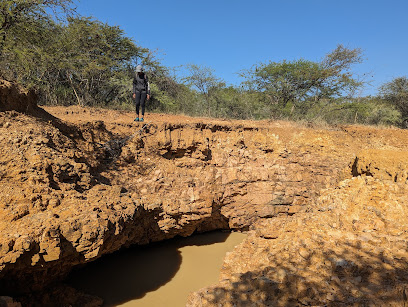
The Farmer's Daughter: Agro- Tourism
Discover Botswana's agricultural heartland: Engage with local farming, enjoy fresh produce, and experience rural life at The Farmer's Daughter in Photlhokwe.
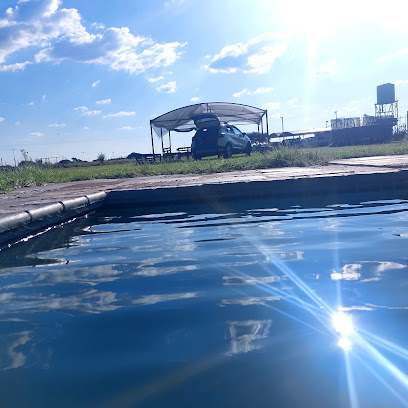
The Hide
Discover Botswana's wildlife at The Hide in Lobatse, a haven for nature lovers and adventure seekers, offering exceptional game viewing experiences.

WildLife
Discover Botswana's wild heart at WildLife Park in Otse, a captivating sanctuary for diverse species and a haven for nature lovers.

Essential places to dine
Lord Cumberland Hotel
Discover comfort and local charm at Lord Cumberland Hotel in Lobatse – your perfect retreat amidst Botswana's vibrant culture.
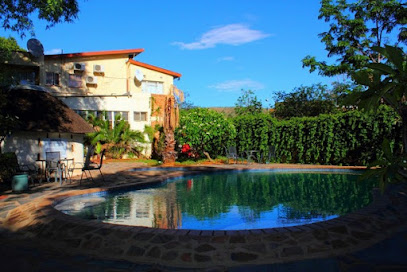
Chicken Licken
Experience the zest of Lobatse with spicy fried chicken at Chicken Licken - where flavor meets convenience!

Manong Game Lodges Location
Discover exquisite dining at Manong Game Lodges in Lobatse – where Botswana's flavors meet breathtaking natural beauty.
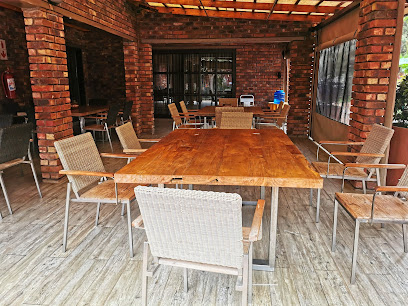
KFC Lobatse
Discover KFC Lobatse: A fast food gem offering delectable fried chicken and more in the heart of Botswana's vibrant Lobatse Junction Mall.

The Braai Place
Experience authentic South African barbecue at The Braai Place in Lobatse – where every bite tells a story.
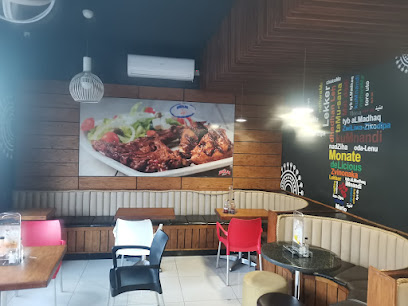
The Grand Bar
Experience the vibrant nightlife at The Grand Bar in Lobatse with refreshing drinks and live music in a welcoming atmosphere.

Swinburn's Rest
Discover tranquility at Swinburn's Rest - your peaceful retreat in Lobatse offering comfort, charm, and delightful hospitality.

Flames BBQ liquor restaurant
Experience authentic Botswanan barbecue at Flames BBQ Liquor Restaurant in Lobatse – where every bite tells a story.

Debonairs Pizza
Experience the best pizza in Lobatse at Debonairs Pizza – where flavor meets convenience!

Plantation Beer Garden
Experience delightful dining at Plantation Beer Garden in Lobatse – where local flavors meet vibrant community vibes.

Perks and Joes
Discover Lobatse's hidden gem at Perks and Joes—where exceptional coffee meets cozy ambiance in an inviting setting.

Markets, malls and hidden boutiques
Pick n Pay Family Lobatse
Explore local culture and culinary delights at Pick n Pay Family Lobatse, a vibrant supermarket offering fresh produce and household essentials.
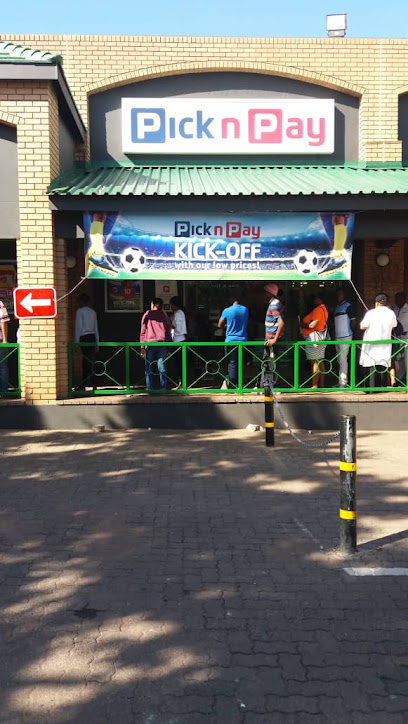
Choppies Superstore Zeerust Road
Discover the vibrant shopping experience at Choppies Superstore Zeerust Road in Lobatse, where convenience meets local flavor.

East&west fashion
Discover trendy styles and local fashion at East&west Fashion, a vibrant shopping mall in the heart of Lobatse, Botswana.
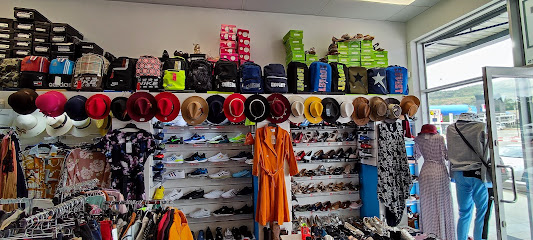
SPAR Lobatse
Discover local flavors and essentials at SPAR Lobatse, your go-to supermarket for fresh produce and unique Botswana products.

Pioneer General Store
Explore Pioneer General Store in Lobatse for local crafts, essential goods, and a taste of Botswana's vibrant culture.
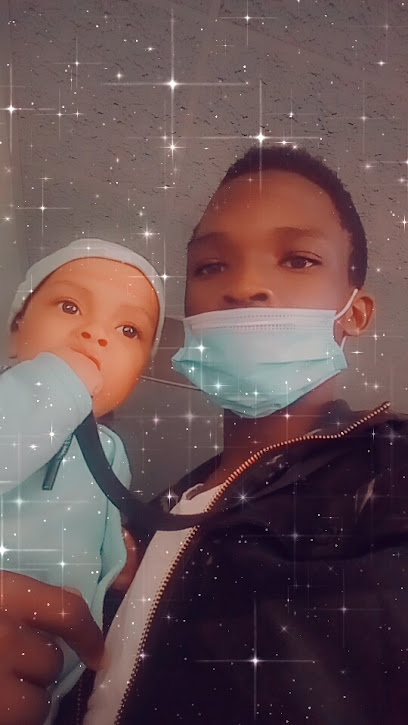
Liquorama
Discover Liquorama in Lobatse, where beverage enthusiasts can explore a vast selection of local and international drinks in a welcoming atmosphere.

L.M Store
Discover the heart of Lobatse at L.M Store, where local goods, home-cooked meals, and friendly service create an authentic Botswana experience.
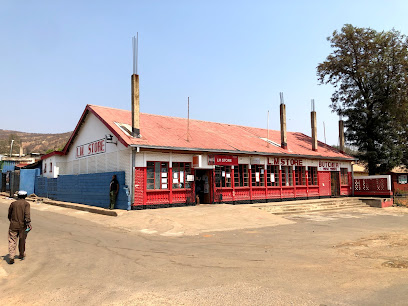
TRANS Cash and Carry
Discover local flavors and fresh produce at TRANS Cash and Carry, the grocery store that brings Lobatse's culinary delights to life.
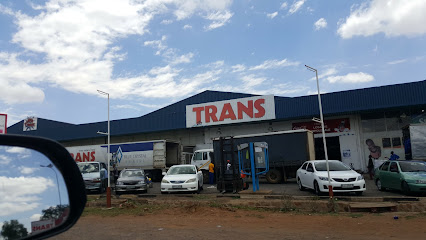
Mr Price / MRP
Discover trendy and affordable fashion at Mr Price Lobatse, the ultimate shopping destination for style-savvy travelers.

Woodhall Shopping Complex
Discover local treasures and a unique shopping experience at Woodhall Shopping Complex in Lobatse, where community meets retail.

PEP Lobatsi
Discover a wide range of affordable and stylish clothing for men, women, and children at PEP Lobatsi in the heart of Lobatse.
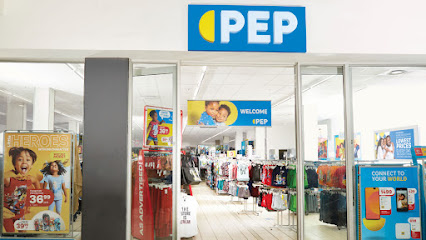
WAYSIDE CHOPPPIES
Explore local flavors and essentials at WAYSIDE CHOPPPIES, the heart of grocery shopping in Lobatse, Botswana.
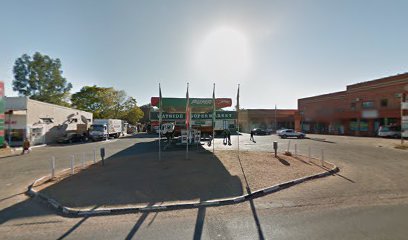
Lobatse Junction Mall
Discover Lobatse Junction Mall, your ultimate shopping and dining destination in Botswana, blending local culture with modern convenience.
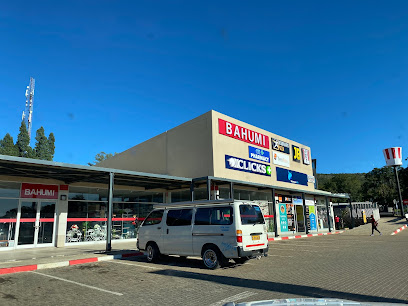
PEP Lobatse Botswana
Shop for stylish clothing and local souvenirs at PEP Lobatse, a family-friendly fashion destination in Botswana.

Lewis Lobatse
Discover quality furniture, appliances, and home goods at Lewis Lobatse, your one-stop destination for stylish home furnishings in Botswana.
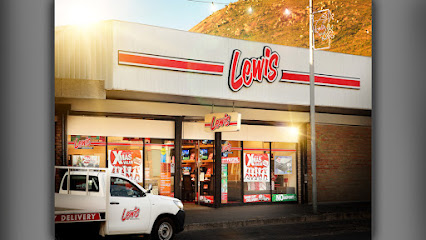
Essential bars & hidden hideouts
KFC Lobatse
Experience the taste of iconic fried chicken at KFC Lobatse, a fast-food haven in Botswana's Lobatse Junction Mall.
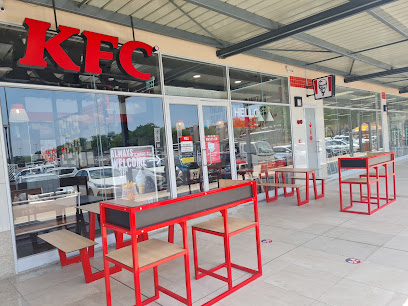
The Braai Place
Experience the authentic taste of Botswana at The Braai Place, where grilled specialties and local charm come together for an unforgettable meal.
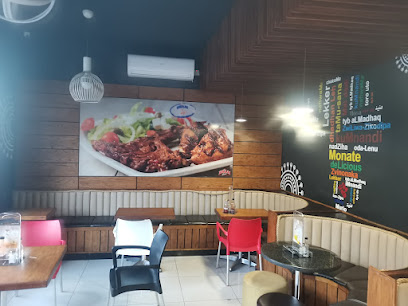
The Grand Bar
Experience the vibrant atmosphere of The Grand Bar in Lobatse, where locals and tourists unite over refreshing drinks and unforgettable memories.

Flames BBQ liquor restaurant
Experience the vibrant flavors of Lobatse at Flames BBQ Liquor Restaurant, where mouthwatering barbecue meets a lively atmosphere.
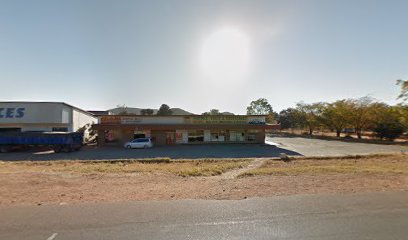
Debonairs Pizza
Discover delicious pizza and a warm atmosphere at Debonairs Pizza in Lobatse, perfect for takeout or a relaxed meal with friends.
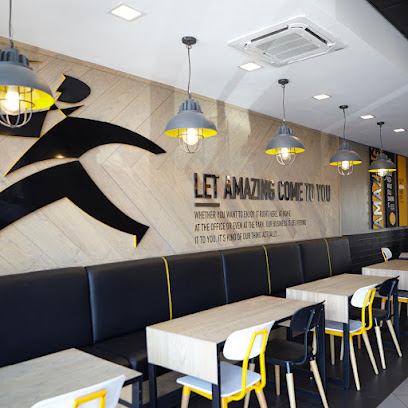
Nosey Road
Experience the vibrant nightlife of Lobatse at Nosey Road, a lively night club with music, dance, and local culture, perfect for unforgettable nights out.

The Venue Bottle Store
Discover local culture and refreshing drinks at The Venue Bottle Store in Lobatse, Botswana, a perfect retreat for tourists.

Plantation Beer Garden
Experience the vibrant flavors and welcoming atmosphere of Plantation Beer Garden, a culinary gem in Lobatse's scenic heart.

Local Phrases
-
- HelloDumela
[du-meh-la] - GoodbyeGabotse
[ga-bo-tse] - YesEe
[ee] - NoNnyaa
[ny-ya] - Please/You're welcomeLe kamoso
[leh ka-mo-so] - Thank youKe a leboga
[keh ah le-bo-ga] - Excuse me/SorryNtshwarele
[ntsh-wa-re-le] - How are you?Dumela, o kae?
[du-meh-la, o ka-eh] - Fine. And you?Ke gona. Le wena?
[keh go-na. leh weh-na] - Do you speak English?O bua sekgowa?
[o bu-a se-ko-wa] - I don't understandGa ke itse
[ga kee it-se]
- HelloDumela
-
- I'd like to see the menu, pleaseKe kopa go bona setlankane, le kamoso
[keh ko-pa go bo-na se-tlan-ka-ne, leh ka-mo-so] - I don't eat meatGa ke nyale nama
[ga kee nya-le na-ma] - Cheers!Phuthu!
[poo-thoo] - I would like to pay, pleaseKe kopa go dira dipalo, le kamoso
[keh ko-pa go dee-ra di-pa-lo, leh ka-mo-so]
- I'd like to see the menu, pleaseKe kopa go bona setlankane, le kamoso
-
- Help!Boipela!
[boi-pe-la] - Go away!Sala go lebelela!
[sa-la go le-be-le-la] - Call the Police!Itselela Kereke!
[it-se-le-la ke-re-ke] - Call a doctor!Itselela moruti!
[it-se-le-la mo-ru-ti] - I'm lostKe sa kgone go utlwa
[keh sa kgo-ne go oot-lwa] - I'm illKe tshwere
[keh tshwe-re]
- Help!Boipela!
-
- I'd like to buy...Ke kopa go tlatsa...
[keh ko-pa go tla-tsa...] - I'm just lookingKe bokete
[keh bo-ke-te] - How much is it?E reng?
[eh reng] - That's too expensiveEna e mahala
[eh-na e ma-ha-la] - Can you lower the price?O ka nola mola?
[o ka no-la mo-la]
- I'd like to buy...Ke kopa go tlatsa...
-
- What time is it?Ke nako eng?
[keh na-ko eng] - It's one o'clockKe moepeng wa bobedi
[keh mo-e-peng wa bo-be-di] - Half past (10)Dikgweding tsa moresi
[di-kwe-ding tsa mo-re-si] - MorningBogwera
[bo-gwe-ra] - AfternoonMolelo
[mo-le-lo] - EveningNtswa
[nts-wa] - YesterdayNgoanafatsa
[ngo-a-na-fat-sa] - TodayNako ee
[na-ko ee] - TomorrowNako eng
[na-ko eng] - 1Moepeng wa nngwe
[mo-e-peng wa nng-we] - 2Moepeng wa bobedi
[mo-e-peng wa bo-be-di] - 3Moepeng wa boraro
[mo-e-peng wa bo-ra-ro] - 4Moepeng wa bone
[mo-e-peng wa bo-ne] - 5Moepeng wa botsadie
[mo-e-peng wa bot-sa-die] - 6Moepeng wa boraro
[mo-e-peng wa bo-ra-ro] - 7Moepeng wa boitshepo
[mo-e-peng wa boi-tshe-po] - 8Moepeng wa bongwe
[mo-e-peng wa bong-we] - 9Moepeng wa bobedi
[mo-e-peng wa bo-be-di] - 10Le bangwe
[le bang-we]
- What time is it?Ke nako eng?
-
- Where's a/the...?Kae...
[kae...] - What's the address?E e eng aterese?
[eh eh eng a-te-re-se] - Can you show me (on the map)?O ka nna lemelela (ka setlele)
[o ka nna le-me-le-la (ka set-le-le)] - When's the next (bus)?Nako eng e tla...
[na-ko eng e tla...] - A ticket (to ....)Lekete (go ....)
[le-ke-te (go ....)]
- Where's a/the...?Kae...
History of Lobatse
-
The area around Lobatse has been inhabited for thousands of years, with evidence of early human settlements and tools found in the surrounding hills and valleys. The indigenous San people, also known as Bushmen, were among the first inhabitants, living as hunter-gatherers and leaving behind a rich legacy of rock art and ancient artifacts.
-
Lobatse's modern history began in the late 19th century when the British colonial administration established a presence in the region. The town was officially founded in 1896 as a strategic location for the British to control the surrounding area and serve as a hub for the administration of the Bechuanaland Protectorate, which would later become Botswana.
-
One of the key developments in Lobatse’s history was the arrival of the railway in 1897. As part of the Cape to Cairo Railway project, the railway significantly boosted Lobatse’s importance as a commercial and transport hub. It facilitated the movement of goods and people, linking Lobatse to other parts of Botswana and neighboring South Africa.
-
In 1964, Lobatse was selected to be the judicial capital of Botswana. The High Court of Botswana was established in the town, making it a central location for the country's legal and judicial affairs. This development attracted legal professionals and contributed to the growth of the town.
-
The Botswana Meat Commission, established in 1965, played a pivotal role in Lobatse’s economic development. The BMC's abattoir in Lobatse became one of the largest meat processing facilities in Africa, providing jobs and stimulating the local economy. The BMC also helped Botswana become a major exporter of beef to Europe and other parts of the world.
-
When Botswana gained independence in 1966, Lobatse continued to grow as an important administrative and economic center. The post-independence era saw the establishment of various educational institutions, healthcare facilities, and infrastructural developments. The town also became a focal point for agricultural and industrial activities, further solidifying its role in Botswana’s development.
-
Lobatse is rich in cultural heritage, with various traditions and festivals celebrated by its diverse population. The town hosts events such as the annual Lobatse International Beef Festival, which celebrates the town’s beef industry and features music, dance, and culinary showcases. The local crafts, traditional music, and dance performances offer a glimpse into the vibrant culture of the region.
-
Surrounded by picturesque hills and valleys, Lobatse offers several natural attractions for visitors. The nearby Otse Hill, the highest point in Botswana, provides stunning views and hiking opportunities. The Manyelanong Game Reserve, home to rare species like the Cape Vulture, is another must-visit spot for nature enthusiasts.
Lobatse Essentials
-
Lobatse is located in the southeastern part of Botswana, approximately 70 kilometers from the capital city, Gaborone. The easiest way to reach Lobatse is by road. If you're flying in from outside Botswana, you will likely arrive at Sir Seretse Khama International Airport in Gaborone. From there, you can rent a car or take a taxi for the hour-long drive to Lobatse. There are also bus services operating between Gaborone and Lobatse, which provide an affordable option for travelers.
-
Lobatse is a relatively small town, and its attractions are mostly accessible on foot. For longer distances, taxis are readily available and reasonably priced. It is advisable to agree on the fare before starting your journey. There are also minibus services, known locally as 'combis,' that connect different parts of the town and nearby areas. Renting a car can offer more flexibility, especially if you plan to explore the surrounding countryside.
-
The official currency in Botswana is the Botswana Pula (BWP). Credit cards are widely accepted in hotels, restaurants, and larger shops in Lobatse, but it is advisable to carry some cash for smaller establishments and street vendors. ATMs are available in the town, so withdrawing cash should not be an issue. However, it's a good idea to have some Pula on hand before arriving in Lobatse.
-
Lobatse is generally considered a safe destination for tourists. However, like any other place, it is wise to take standard precautions. Avoid walking alone at night in deserted areas and keep an eye on your belongings in crowded places. While Lobatse does not have many high-crime areas targeting tourists, staying vigilant and aware of your surroundings is always a good practice.
-
In case of emergencies, dial 999 for police assistance and 997 for medical emergencies. Lobatse has a local police station and a hospital that can handle most emergencies. It is recommended to have travel insurance that covers medical emergencies. Pharmacies are also available in the town for minor health issues and over-the-counter medications.
-
Fashion: Do dress modestly, especially when visiting religious sites or local communities. Avoid wearing overly revealing clothing. Religion: Do respect local customs and traditions. Always seek permission before taking photographs in places of worship. Public Transport: Do be courteous and offer your seat to elderly passengers. Don't eat or drink on public transport. Greetings: Do greet people with a handshake and a friendly smile. A slight nod of the head is also a sign of respect. Eating & Drinking: Do try local dishes and accept food offerings graciously. Don't refuse hospitality, as it is considered impolite.
-
To experience Lobatse like a local, visit the local markets where you can purchase fresh produce and traditional Botswana crafts. Engage with locals, who are generally friendly and eager to share their culture and history. Don't miss the chance to explore the natural beauty around Lobatse, including the Lobatse Mountain Range and nearby nature reserves. For a unique experience, visit the Lobatse Sports Complex to catch a local football match.
Trending Landmark in Lobatse
Nearby Cities to Lobatse
-
Things To Do in Gaborone
-
Things To Do in Molepolole
-
Things To Do in Pretoria
-
Things To Do in Johannesburg
-
Things To Do in Mahalapye
-
Things To Do in Serowe
-
Things To Do in Palapye
-
Things To Do in Kimberley
-
Things To Do in Polokwane
-
Things To Do in Selebi-Phikwe
-
Things To Do in Bloemfontein
-
Things To Do in Leribe
-
Things To Do in Butha-Buthe
-
Things To Do in Teyateyaneng
-
Things To Do in Francistown





